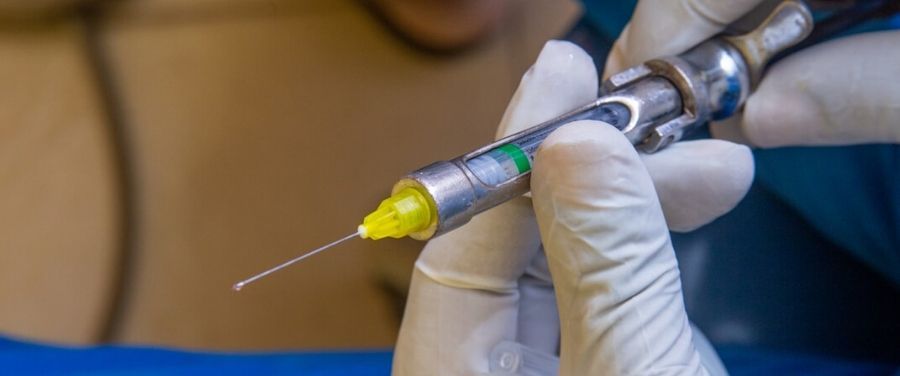WHAT IS HEPATITIS B?
Hepatitis B is an infection of your liver. It attacks your liver and can cause both diseases — acute and chronic. It can cause scarring of the organ, cancer and the liver failures. It can be fatal if this infection isn’t treated. It spreads when people come in contact with the blood, body fluids or open sores of someone who has the hepatitis B virus (HBV).
Hepatitis B can be spread through sex. You can protect yourself by getting the hepatitis B vaccines and having safer sex. It’s serious, but if you get the disease as an adult, it shouldn’t last a long time. Your body fights this disease off within a few months, and you’re immune for the rest of your life. That means you can’t get it again. But, if you get hepatitis B at birth, it’ unlikely to go away.
It is estimated that around 257 million people are living with hepatitis B virus infections (defined as hepatitis B surface antigen positive). In the year 2015, hepatitis B disease resulted in 8,87, 000 deaths, mostly from the complications (hepatocellular carcinoma and including cirrhosis).
Hepatitis B is a major global health issue. It can cause chronic infections and puts people at the high risk of death from cirrhosis and the liver cancer. A vaccine against hepatitis B has been available since the year 1982. This vaccine is 95% effective in preventing the infection and the development of liver cancer and chronic disease due to hepatitis B.
WHAT CAUSES HEPATITIS B?
The hepatitis B virus can survive outside of your body for at least a week. During this time, the virus (HBV) can still cause infection if it enters your body, while you are not protected by the hepatitis B vaccine. The incubation period of this virus (HBV) is 75 days on average, but can vary from 30 to 180 days. The virus may be detected within 30 to 60 days after infection and can persist and develop into the chronic hepatitis B.
Hepatitis-B is most commonly spread in highly endemic areas from mother to child at birth, or through horizontal transmission (exposure to infected blood), especially from an infected child to an uninfected child during first 5 years of life. Chronic infection development is very common in infants infected from their mothers or before the age of 5 years.
Hepatitis B is also spread by mucosal or percutaneous exposure to infected blood and various body fluids, as well as through the saliva, menstrual, vaginal, and the seminal fluids.
Hepatitis B sexual transmission may occur, particularly in unvaccinated men who have sex with men and heterosexual persons with multiple sex partners or contact with the sex workers.
It can also spread through the reuse of needles and syringes either in health-care settings or among persons who inject drugs. In addition, infection can occur during surgical, medical and dental procedures, through tattooing, or through the use of razors and similar objects that are contaminated with the infected blood.
Hepatitis B doesn’t spread from sharing drinks and foods, through hugging, holding hands, kissing and breastfeeding.
WHAT ARE THE SYMPTOMS OF HEPATITIS B?
Most of the people don’t experience any symptoms of hepatitis B during the acute infection phase. However, some people have the acute illness with the symptoms that may last several weeks.
Hepatitis-B symptoms may typically last for a few weeks, but sometimes can stick around for the months. The signs and symptoms of hepatitis B include —
- Feeling really tired
- Jaundice — yellowing your skin and the eyes
- Dark-colored urine
- Nausea and vomiting
- Pain in your belly
- Losing your appetite
- Pain in your joints
- Headache and fever
- Hives
If you have hepatitis B symptoms, it’s important to check with a doctor.
HOW TO PREVENT HEPATITIS B?
As discussed earlier, hepatitis B is a liver infection caused by hepatitis B (HBV) virus. The best way to avoid hepatitis B is to get the HBV vaccine. Hepatitis B vaccine is totally safe for most of the people. Most babies, kids, and adults have no issues at all when they get the hepatitis B vaccine.
In fact, more than hundred million people in the United States have gotten hepatitis-B vaccine. Like all medications, the vaccine may have some mild side effects — redness, swelling, soreness or itching around where you get the shot, or a slight fever. But these things aren’t serious and usually go away pretty quickly.
There’s an extremely small risk of having an allergic reaction to the hepatitis B vaccine. If you get dizzy, feel your heart beating really fast, feel weak, have a high fever, break out in hives, or have trouble breathing, get medical help right away.
Another way to protect yourself from hepatitis B is to have safer sex by using condoms and dental dams (polyurethane or latex sheets used between the mouth and vagina or anus) during oral, anal, and vaginal sex. Don’t share toothbrush or razors, because they could spread hepatitis B, if they have infected blood on them.
And also don’t share needles for piercings, tattoos, or shooting drugs — it’s dangerous and can easily transmit hepatitis B and other infections. World Health Organization (WHO) recommends that all infants receive the hepatitis-B vaccine as soon as possible after the birth, preferably with in 24 hours.
HOW DOES THE HEPATITIS B VACCINE SERIES WORK?
The hepatitis B vaccine protects you from the hepatitis B virus by getting your body’s immune system to make antibodies (also known as an immunoglobulin).

An antibody is a large, Y-shaped protein produced mainly by plasma cells, used by the immune system to neutralize pathogens such as pathogenic bacteria and viruses. These antibodies protect you by fighting off the virus, if it ever gets into your body.
Usually, the Hepatitis B vaccine is spaced out into three different shots — called a hepatitis B vaccine schedule. One month after your first shot, you will get the second shot. And, six months after your first shot, you will get the third shot. If you miss your second or third dose, get it as soon as you remember.
The hepatitis vaccine is super effective. It’s worked really well to lower number of people who get hepatitis B every year. Hepatitis B vaccine has an excellent record of effectiveness and safety. Since 1982, over 1 billion doses of hepatitis B vaccine have been used worldwide.
In many countries where between 8 to 15 percent of children used to become chronically infected with the hepatitis B virus, vaccination has reduced the rate of chronic infection to less than 1 percent among immunized children.
RELATED ARTICLES:
- Hepatitis-A Causes, Diagnosis, Treatment and Vaccination
- Gout and Uric Acid : Do’s and Don’ts
- Corona Virus Symptoms, Causes and Treatment [A Complete Guide]
- High Blood Pressure : Causes, Risks and Recommended Diet Plan
- Post-Traumatic Stress Disorder : Causes, Symptoms and Treatment
- Acute Encephalitis Syndrome : Symptoms and Treatments

I believe this is among the so much significant info for me. And i am glad studying your article. But want to remark on few normal things, The web site style is great, the articles is actually excellent : D. Excellent activity, cheers